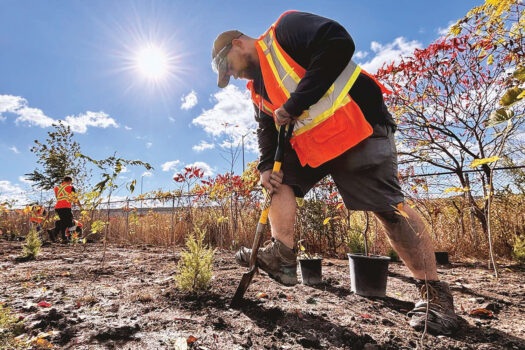Note from LO executive director Tony DiGiovanni: The following letter was sent to me from a father who is active in the industry. His son was interested in a career in horticulture. He isn’t anymore. It outlines his son’s experience working as a summer student.
One of the largest frustrations I hear from members is that they have difficulties finding and keeping good employees. There are many complex and structural reasons for this, however, it always helps to look at your specific situation from the employee’s perspective to see if you can enhance his experiences and cultivate good individuals who want to stay in the industry.
Many years ago, I attended a talk on human resources. At the end of the seminar, the speaker pointed out that many people don’t quit jobs, they quit employers. He suggested that employers look themselves in the mirror and ask a simple question: “Would I work for you?” This is timeless advice and holds one of the keys to employee retention.
The following letter serves as a reminder of the importance of looking at the work environment through the eyes of your employees. We have withheld printing the author’s name, who is concerned over a possible repercussion on his business.
I have been ruminating for the last few months on where the industry is headed, based on my son’s experience with three different landscaping companies. For the purposes of confidentiality, I won’t say which companies, and my name needs to be left out as well.
After my son graduated from college in June, he considered pursuing a career in landscape construction/maintenance. He landed a job from an advertisement on Kijiji for a landscape construction labourer. His interview was on the phone, and he was told to show up at the job site the next day. Because he had experience with operating some equipment, his new employer asked him if he had operated a skid-steer before. No, he hadn’t, but he was pretty adept at picking it up. My son was concerned about the way his boss operated the skid-steer. He worked at such a fast pace, he was bashing into expensive rocks, breaking chunks off of them, shrugging it off by saying the customer will pay for more.
My son’s training lasted all of 30 seconds, if that. He worked for the rest of the day, and came home to tell me about his day. Since he had worked for me the previous year, he was used to me drilling him on safety, forms filled out, and regular training refreshers. When he told me about what a cowboy this owner was, I told him to call and resign; this place was a disaster waiting to happen.
He quickly landed a construction labourer position with a large company (an LO member) and began working on-site. Training was better, but minimal. Being a big strong kid, he was given physically grueling work, and after a few weeks developed an injury that left his hand and arm numb. He immediately reported the problem to his supervisor, and went home to see a doctor. The doctor was not thorough, and simply told him to take a couple of days off.
Upon his return to work, the injury became even worse. After reporting the injury to the manager, he went to three different medical professionals for treatment. The day after seeking treatment, he hand-delivered a letter to his employer (upon my direction) stating the nature of the injury. His treatment from a new doctor began, and the doctor filed with WSIB. A few days later, I as his father sent an email to the employer stating that my son could return to work, but for modified duty. No response was given.
Once the claim was started, WSIB contacted the employer. The employer must have assumed that a young person fresh out of school did not have the wherewithal to have his ducks lined in a row regarding a compensation claim, because he refused to acknowledge the injury happened at work, and that my son did not keep him informed. WSIB asked for follow-up documentation from my son, of which we had plenty. In a matter of days, his claim was approved, and from what I am told, that’s quite speedy.
He returned to work on modified duty, and then back to his regular duty. By now it was the end of the season, and he was supposed to be given full-time winter work, yet was laid off. They were pissed about the WSIB issue.
He was able to land another position quickly with another large company (LO member), and this experience is 180 degrees from the previous experience. My son is eager to make money and responds to snow calls without fail. They are very happy with him, because he shows up, he does his paperwork, the quality of his work is good, and he doesn’t complain when asked to do something. Being on call 24/7 for snow is horrendous. Because he is a conscientious employee, he cannot make any plans unless we are in a warm spell. The employer, as good to him as they are, cannot offer anything but hours worked, as they contend with property damage claims caused by roughshod staff, leaving them strapped for cash.
That said, he will return to college in another industry, and I don’t blame him. It’s no wonder companies have such a hard time finding and keeping good people. For someone looking for work, it is more luck than anything if he or she finds a good company that treats employees as their most important resource. I believe for every good operator out there, there are eight crappy ones.
The Turfnet blog ran an interesting article discussing the vanishing work ethic amongst young people. Given what my son experienced, what does it say about the future of our industry? Yikes.








